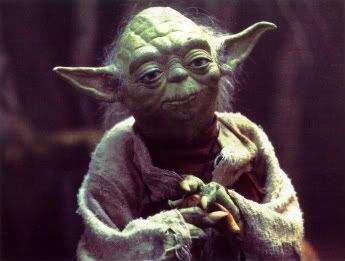I think the key to the Luke-uses-evil-powers scenario is that it's a step on a path. The first few times he uses darkside Force powers, he'd have great reasons and justifications. But since those powers are so strong, the next time he's in a struggle he may turn to them right away because jeez, why not? Gradually, the swift use of deadly force becomes easier to use and to justify. One day he's the dictator of the galaxy.
This is one of the problems with the new prequel trilogy. Anakin makes sense as an impetuous, brash guy who finds the rules restricting who he loves a problem. When his mom is tortured by sandpeople and he flips out and kills them all, it's pretty understandable. The Sandpeople are consistently presented as "the other" -- you don't see sandpeople speeder mechanics knocking back a drink in the cantina with the humans. In his rage, his actions are understandable, if not necessarily justifiable.
Where I think the new movies went wrong (in this context) is how swiftly Anakin moves to murdering the Jedi kids. That's a really, really big step that I don't think is in any way reasonable for his character to take.
The KOTOR game seem more like Anakin and less like Luke. Which is a shame, because Luke has a much better story.
This is one of the problems with the new prequel trilogy. Anakin makes sense as an impetuous, brash guy who finds the rules restricting who he loves a problem. When his mom is tortured by sandpeople and he flips out and kills them all, it's pretty understandable. The Sandpeople are consistently presented as "the other" -- you don't see sandpeople speeder mechanics knocking back a drink in the cantina with the humans. In his rage, his actions are understandable, if not necessarily justifiable.
Where I think the new movies went wrong (in this context) is how swiftly Anakin moves to murdering the Jedi kids. That's a really, really big step that I don't think is in any way reasonable for his character to take.
The KOTOR game seem more like Anakin and less like Luke. Which is a shame, because Luke has a much better story.

